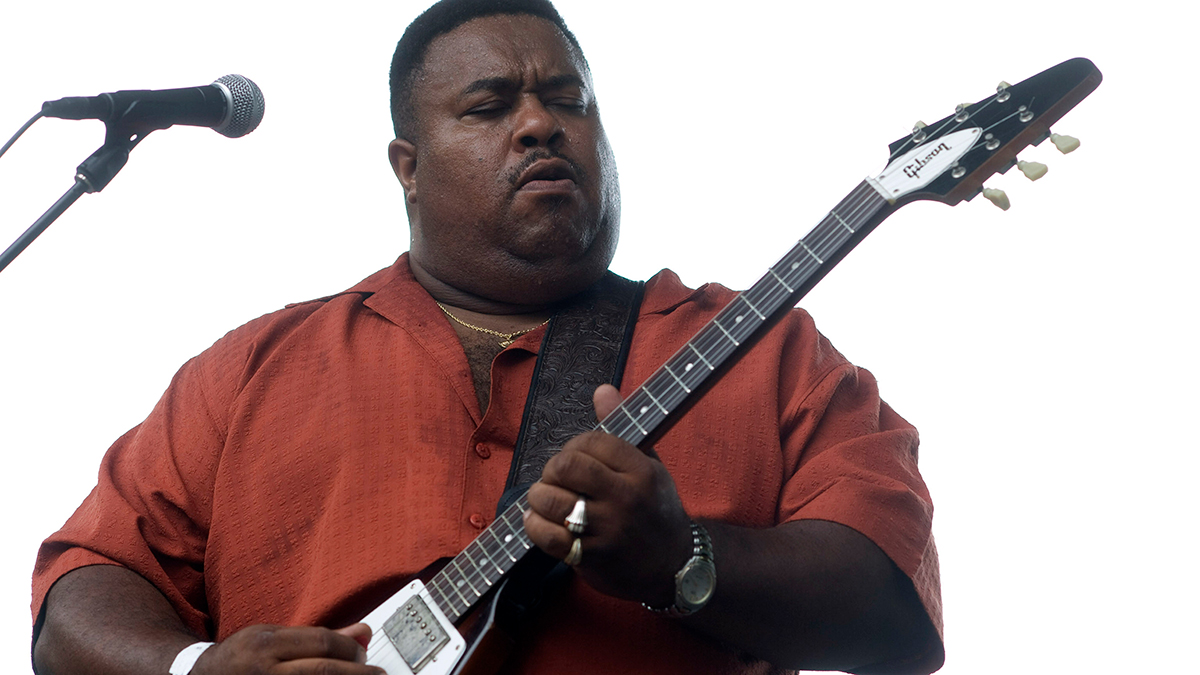Kim Simmonds, blues guitar icon and Savoy Brown founder, dies at 75
A pivotal figure in British blues-rock, Simmonds was a significant influence on guitarists like Joe Bonamassa, who cited him as "one of kindest souls I'd had ever met in this business of music"

Kim Simmonds – a legend of British blues guitar – has died at the age of 75, his band, Savoy Brown, confirmed on social media.
"Kim Simmonds passed away peacefully in the evening of December 13," the message reads, "may he rest in peace." The guitarist had been battling colon cancer.
As the founder and sole constant member of Savoy Brown, Simmonds was a pivotal figure in British blues-rock who – though never quite becoming a household name – influenced countless blues-inclined guitarists in his wake.
Born in Wales in 1947, Simmonds picked up the guitar at a young age, and was influenced as a teenager by American R&B and blues, and the British bands – most prominently the Rolling Stones – that that music, in turn, inspired.
At the tender age of 18, Simmonds formed the Savoy Brown Blues Band. It was the mid-'60s, when the London blues scene was overflowing with budding young talents that would go on to become superstars. Soon to become simply Savoy Brown, the band shared bills with Cream and, later, Rod Stewart and the Faces, and at one point included a number of members of Chicken Shack, a successful London blues act that for a time featured Christine McVie on keyboards.
Relentless touring helped build Savoy Brown's recognition in both the US and their home country, and some degree of commercial success finally came with the band's 1970 album, Looking In. Charting in the top 50 in the UK, US and Canada, the LP began a successful run for the band that culminated in their most successful album, 1972's Hellbound Train.
Almost from the get-go, the band's lineup was a merry-go-round, anchored always by Simmonds, and his skillful, melodic and fiery guitar work.
All the latest guitar news, interviews, lessons, reviews, deals and more, direct to your inbox!
Through the numerous personnel shifts, Savoy Brown remained a stage and studio juggernaut for over 50 years, releasing dozens of albums and keeping up a constant touring schedule. In the latter part of his career, Simmonds also struck out on his own, releasing five solo albums, starting with 1997's Solitaire.
In 2021, Simmonds was diagnosed with stage 4 colon cancer, forcing the guitar great to curtail his ever-busy touring schedule. In a statement posted to Savoy Brown's website in August, Simmonds wrote that he had finished a new album, with "many more songs in the studio files that I intend to release as time evolves."
"Kim Simmonds was one of kindest souls I'd had ever met in this business of music," wrote Joe Bonamassa on Twitter upon learning of the bluesman's death. "Always smiling and jovial. He along with Lonesome Dave made some beautiful records with Savoy Brown. Rest in peace Kim. You will be missed."
Jackson is an Associate Editor at GuitarWorld.com. He’s been writing and editing stories about new gear, technique and guitar-driven music both old and new since 2014, and has also written extensively on the same topics for Guitar Player. Elsewhere, his album reviews and essays have appeared in Louder and Unrecorded. Though open to music of all kinds, his greatest love has always been indie, and everything that falls under its massive umbrella. To that end, you can find him on Twitter crowing about whatever great new guitar band you need to drop everything to hear right now.

